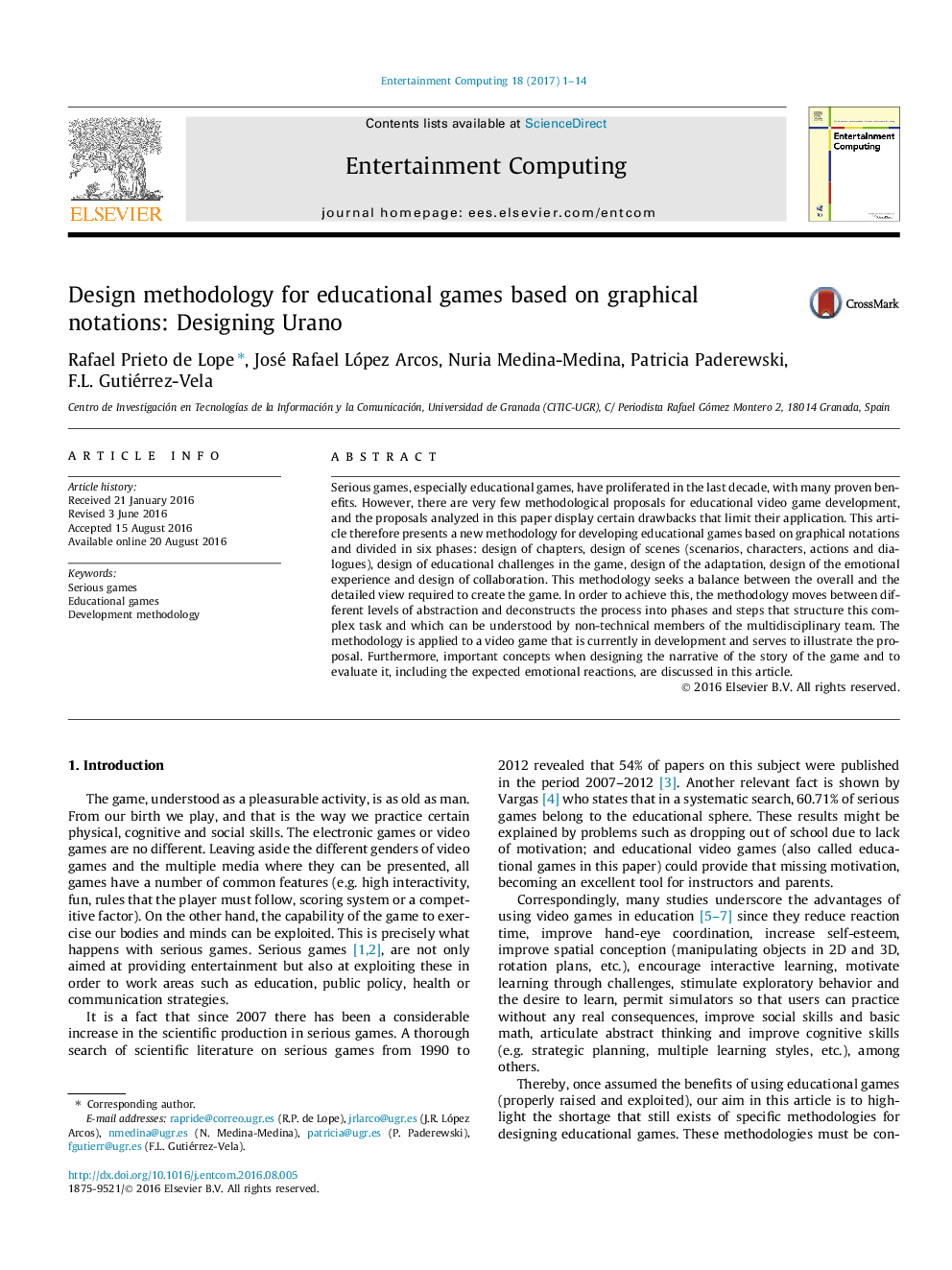| Article ID | Journal | Published Year | Pages | File Type |
|---|---|---|---|---|
| 4942881 | Entertainment Computing | 2017 | 14 Pages |
Abstract
Serious games, especially educational games, have proliferated in the last decade, with many proven benefits. However, there are very few methodological proposals for educational video game development, and the proposals analyzed in this paper display certain drawbacks that limit their application. This article therefore presents a new methodology for developing educational games based on graphical notations and divided in six phases: design of chapters, design of scenes (scenarios, characters, actions and dialogues), design of educational challenges in the game, design of the adaptation, design of the emotional experience and design of collaboration. This methodology seeks a balance between the overall and the detailed view required to create the game. In order to achieve this, the methodology moves between different levels of abstraction and deconstructs the process into phases and steps that structure this complex task and which can be understood by non-technical members of the multidisciplinary team. The methodology is applied to a video game that is currently in development and serves to illustrate the proposal. Furthermore, important concepts when designing the narrative of the story of the game and to evaluate it, including the expected emotional reactions, are discussed in this article.
Related Topics
Physical Sciences and Engineering
Computer Science
Artificial Intelligence
Authors
Rafael Prieto de Lope, José Rafael López Arcos, Nuria Medina-Medina, Patricia Paderewski, F.L. Gutiérrez-Vela,
